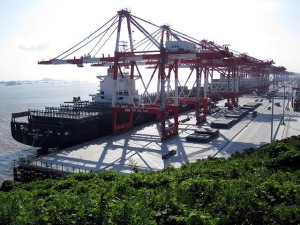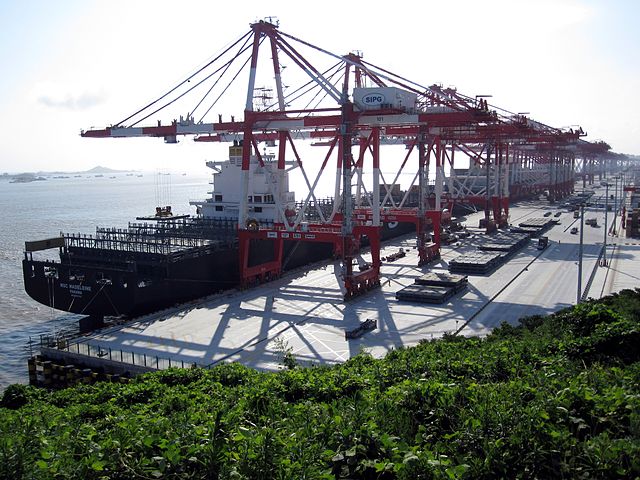 The continued slowdown of China’s economy will have an impact on container shipping this year, reducing box volume on global trade lanes by about 1% this year, according to a new forecast by Drewry Maritime Research.
The continued slowdown of China’s economy will have an impact on container shipping this year, reducing box volume on global trade lanes by about 1% this year, according to a new forecast by Drewry Maritime Research.
The shipping consultancy has cut its 2015 growth forecast for container traffic at Greater China ports from 5.8% to 4.9%, which represents a shortfall of about 1.85 million twenty foot-equivalent units (TEUs), or roughly 1% of world traffic in 2014.
Greater China (including Hong Kong) represents about 30% of all container moves in the world, having nearly doubled its share since the start of the century when its expansion was given a major boost following entry into the World Trade Organization (WTO).
“Clearly, with such a large piece of the pie, the direction of the Chinese economy has a huge bearing on world port throughput growth,” said Drewry.
China’s economy has been cooling in recent years as its policymakers strive for steadier growth that derives less from investment and more from services and consumption. This new direction has caused its imports to dip, which the maritime research service sees as the prime reason for the decline in Chinese container movements.
Drewry used the WTO’s merchandise trade data to peg China’s share of imports at the mid-40% range. It estimates that China container imports only grew by 1.6% last year, whereas exports rose by 9.1%. “The net effect was that total volume growth was unchanged at 5.6%,” said Drewry.
The latest WTO data suggests that China’s merchandise imports were down by 15.5% in the first six months of 2015, whereas merchandise exports managed a 1% rise.
“Assuming that is a broadly accurate ratio we can then see that a slowdown in the growth of Chinese container imports lies behind the static overall growth picture,” said Drewry.
The dry bulk industry, it further noted, has been significantly affected by the slide in Chinese fixed asset investments and the fall in demand for commodities such as iron ore, coal, and oil that have crashed to multi-year price lows.
The same trend appears to hold true for the container shipping sector, though to a lesser degree. “The risks from a slowdown in Chinese consumption to container shipping are far smaller than for the dry bulk sector, but they are not inconsiderable and will contribute to slowing world box growth,” said Drewry.
Photo: Marqueed





